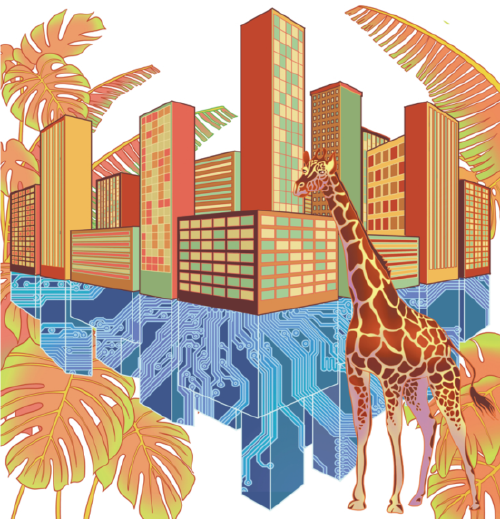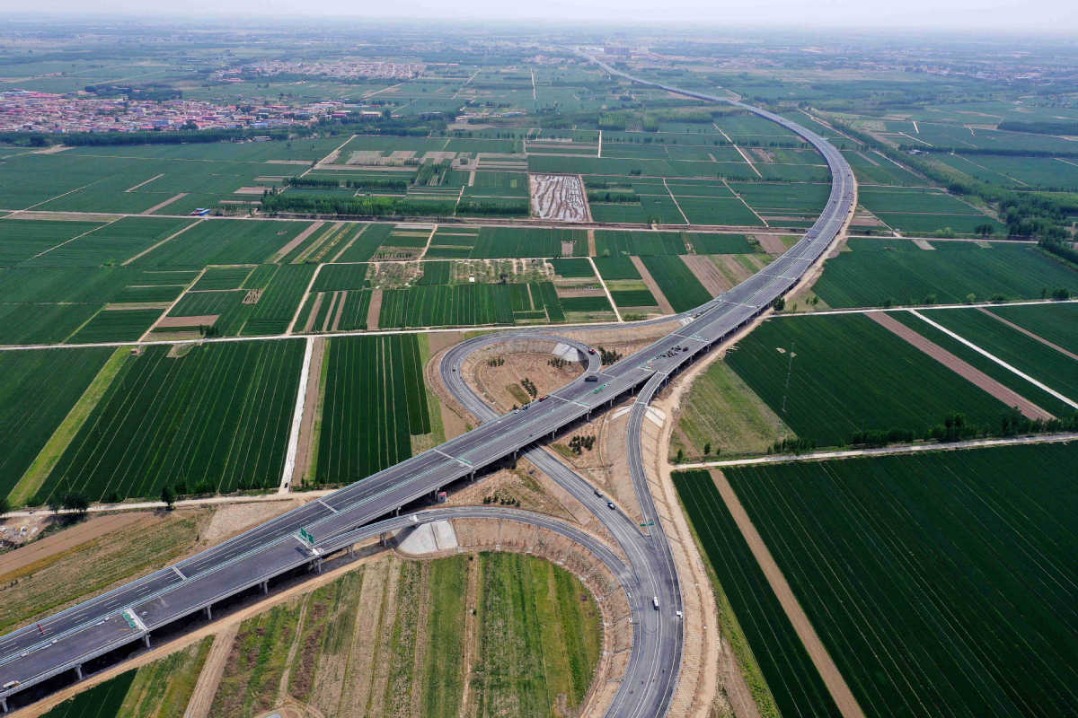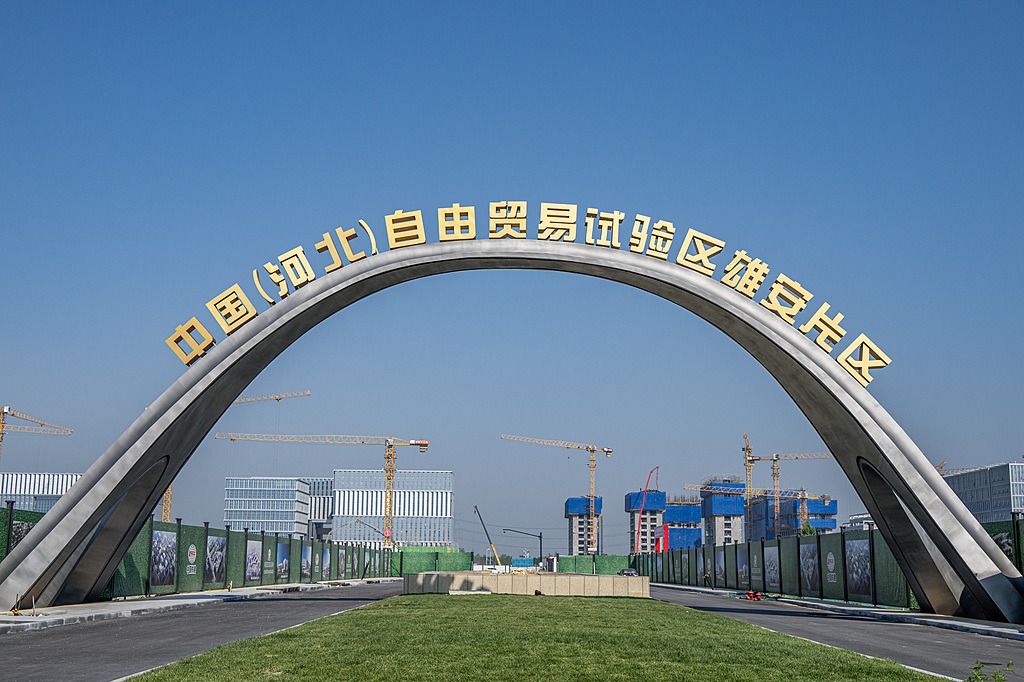Dynamic impetus of STI
China can help African countries bridge the digital divide and advance toward technological self-reliance


Since the release of the China-Africa Dar es Salaam Consensus in 2024, China has been building digital infrastructure and investing in digital technology in Africa, paving the way for both sides to jointly move toward a future of technological self-reliance.
The efforts, from building digital infrastructure to introducing smart agriculture, and from artificial intelligence to green transformation, have not only accelerated Africa's technological independence and self-reliance but also demonstrated boundless possibilities of South-South cooperation.
Africa's large young population and growing internet penetration rate have endowed the continent with an invaluable data resource advantage. Its digital technology sector holds immense potential for investment. According to a Partech Africa Tech Report, tech startups across the continent received $3.2 billion in funding in 2024, with emerging startups mainly focusing on fintech, e-commerce and educational technology. E-commerce in Africa is also booming. Data show that e-commerce transaction volumes in several African countries, including Kenya, Egypt and South Africa, are growing at an annual rate of over 20 percent. Statistics from the United Nations Conference on Trade and Development estimate that Africa's digital economy will contribute $180 billion to the region's GDP by 2025.
Sci-tech innovation is drawing the attention of more and more African nations and is regarded as a key factor for development in the new era. The African Union's Agenda 2063 proposes to undertake a revolution in education and skills development in science, technology and innovation (STI) as a priority, and achieve manufacturing/industrialization and value addition driven by STI. As Africa's demand for sci-tech innovation grows, China's investment in digital technology there has, to some extent, bridged the gaps in infrastructure construction and funding shortages, thus expanding the growth space for the future development of homegrown African technology.
Under the framework of the Belt and Road Initiative and South-South cooperation, China's investment in digital infrastructure in Africa is being gradually deepened and advanced. In July 2024, China and 26 African countries jointly released an action plan for digital cooperation and development. According to the document, the parties will take further cooperative actions in six major fields to accelerate the digital transformation of traditional sectors, help African countries build infrastructure, and promote the transformation and upgrading of Africa's industries. The China-Africa Cooperation Vision 2035 further emphasizes that sci-tech cooperation provides new impetus for development and digital cooperation and speeds up Africa's transformation.
China's investment in African digital infrastructure has laid a solid foundation for Africa's sci-tech innovation. The investments cover multiple fields, including undersea cables, data centers, and satellite communications. The 2Africa undersea cable project, in which China Mobile International participated as one of the investors, is the world's longest subsea cable infrastructure with an investment totaling $3 billion and a total length of 45,000 kilometers. Chinese enterprises have signed information and communications technology (ICT) infrastructure construction contracts with several African states, including Uganda, Tanzania, Ethiopia, Cameroon and Nigeria. Huawei Tanzania has provided most of the communication equipment for the network facilities on Mount Kilimanjaro, achieving wireless network coverage there.
The Action Plan for China-Africa Digital Cooperation and Development mentions that the two sides will jointly train 1,000 talents over the next three years. So far, China has established 17 Luban Workshops in 15 African countries, offering majors in digital technologies such as cloud computing and artificial intelligence. These workshops have trained about 12,000 engineers and intelligent equipment technicians. According to a 2024 report published by China-Africa Business Council, by the end of 2023, Huawei's Seeds for the Future program, launched in Tanzania in 2016, had provided over 240 local college students with the opportunity to learn cutting-edge ICT skills.
In the field of smart agriculture, the Chinese company XAG has introduced advanced drone digital technology to African farmlands, helping local farmers increase production and income through techniques such as atomized spraying and path planning. In terms of smart networks, in May 2024, Huawei's public cloud was launched in Egypt, becoming the first AI center for analyzing and processing big data in North Africa. Regarding smart cities, Chinese tech companies represented by Huawei, Hikvision and Uniview have actively cooperated with African governments. They have contributed technologies and experience in smart services, AI and information sharing to Africa's smart city initiatives, effectively improving its people's life quality.
To promote sci-tech innovation in Africa, the following measures should be taken. The first is to fully leverage the role of Luban Workshops; expand investments in digital technology education in Africa; set up a new mechanism for joint construction and sharing among enterprises, research institutions, and educational platforms; promote the integration of industry, academia and research; make tailored efforts to meet industry needs; enhance local scientific research and incubate more digital technology-related jobs. The second is to establish local production and supply chains; encourage Chinese companies to invest in more digital sectors; focus on technological improvement and regional influence; help Africa cultivate its own industries; break away from the "one-way output" mindset; establish an innovative mechanism for sharing intellectual property rights and reinvest profits into research and development. By doing so, the benefits of technology transfer can be turned into sustainable innovation capabilities, enabling African technology to achieve genuine qualitative improvement and upgrading.
China and Africa should strengthen industrial alignment and cooperation, jointly promoting the development and upgrading of new-quality production. As for policy coordination, the scale and methods of Chinese enterprises' investment in Africa are closely related to the policy environment and cultural background of African countries. When investing in digital sectors, it is necessary to leverage local African knowledge resources, adapt to the investment and operational rules of the local market, ensure project implementation, and improve the alignment efficiency in digital technology investment in Africa. Regarding institutional safeguards, while China and Africa enhance cooperation in digital technology, they must also deepen collaboration in intellectual property protection, strengthen digital governance, and optimize relevant systems to safeguard both parties' innovative rights and legitimate interests in the field of industrial technology.
The Dar es Salaam Consensus serves as a road map for the modernization of the Global South, as well as a vision and interpretation of future China-Africa development and cooperation. The joint development of the two sides' digital technology under the framework of the consensus is neither a simple transfer of technology nor one-way aid. Instead, it acknowledges differences and builds a common development model in the digital era that embraces the principle of "appreciating the beauty of each, and sharing beauty together". By fully utilizing multilateral cooperation mechanisms such as the Forum on China-Africa Cooperation, the China-Africa Think Tanks Forum and the China-Africa Economic, Trade and Cultural Forum, the two sides will strengthen cooperation and exchanges among digital talents, drive African technological innovation and upgrading, help African countries eliminate barriers and bridge the divide in the digital field, and establish a multilevel and multi-field STI cooperation mechanism between China and Africa.
Zhou Qian is a distinguished professor of the Shuanglong Scholars program at the Institute of African Studies at Zhejiang Normal University. Hu Lanyin is a research associate at the same institute.
The authors contributed this article to China Watch, a think tank powered by China Daily.
Contact the editor at editor@chinawatch.cn.

































